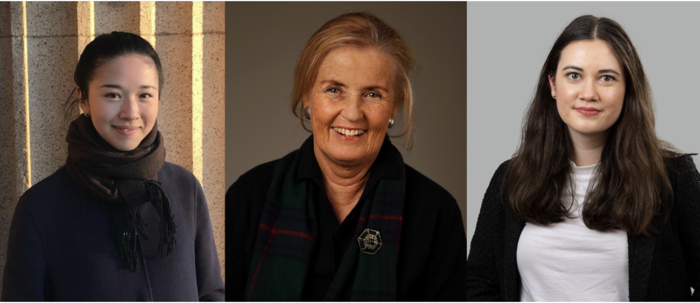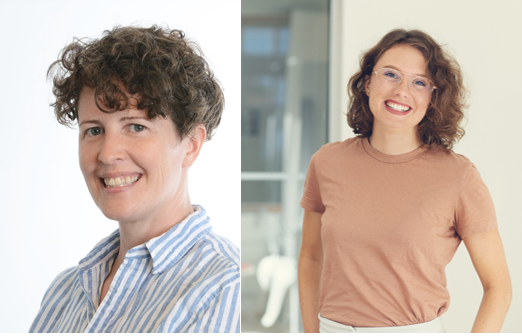Previous events - Page 18
A narrative of pharmaceutical regulation development and its implementation entanglements. Speaker: Peter Mangesho, Institute of Health and Society, UiO
We are thrilled to announce an upcoming event featuring the acclaimed novel "Dancing Amid Fire, Rising Above Ruins" by Essmat Sophie. This event promises to be an engaging and thought-provoking discussion on the themes of identity, intersectional oppression, exile, politics, history, and the marginalized Kurdish community in Iran.
Join us for a CIMS conversation with Palestinian Human Rights Defender, Omar Barghouti.
Associate Professor in Philosophy, Joel Krueger, from University of Exeter, will speak at RITMO's Seminar Series
Speaker: Ingvild Bergom Lunde, Institute of Health and Society
Hemispheric and Global Dialogues on the Transnational American West
Department seminar. Alexandre Gaillard is an Assistant Professor of Economics at Brown University. He will present the paper: “Consumption, Wealth, and Income Inequality: A Tale of Tails.”
Where are you going, structural biology? This mini-symposium will focus on the modern use of NMR, CryoEM/ET and AlphaFold in the elucidation of protein structure and function.
Department seminar. Justus Preusser is a a Postdoctoral Researcher at Bocconi University. He will be presenting "Optimal allocation with peer information" (written with Axel Niemeyer).
Could Nora Helmer actually end up in prison after forging her father’s signature? Was Hedda Gabler a true criminal? Join us for an In-house seminar on Henrik Ibsen and the law.
Christopher Lord presents the chapter Taking back Control. How Brexit meant much more than Brexit at the Tuesday Seminar on 12 March 2024.
Department seminar. Astrid Kunze is Professor of Economics at the Norwegian School of Economics in Bergen, Norway. She will be presenting "Parental Leave from the Firm's Perspective".
Welcome to the photo exhibition Women in exile, which explores Kurdish women's experiences of daily life during and after conflict.
Veronka ?rsike Asztalos (University of Szeged) will present her research on Ibsen and Bj?rnson's Hungarian reception.
In this seminar, Maja Klausen and Sne Scott Hansen will explore issues related to the (dis)connecting body.
Department seminar. Stefan Pollinger is and Assistant Professor at Sciences Po, Paris. He will present the paper: "Kinks Know More: Policy Evaluation Beyond Bunching with an Application to Solar Subsidies."
An ethnography of young women’s reproductive futures anchored on the COVID-19 vaccination infertility rumors in Khwisero, Western Kenya. Guest Speaker: Mariam Yusuf, University of Nairobi
Invited speaker Elinor Ben-Menachem from Sahlgrenska Academy, Sweden, will present on using clinical insights to drive epilepsy drug development.
Department seminar. Kjell G. Salvanes is a Professor in labor economics at NHH, research director at CELE since 2012, and deputy director of the Centre of Excellence FAIR (Centre for Experimental Research on Fairness, Inequality and Rationality). He will be presenting "Childhood Shocks Across Ages and Human Capital Formation" (written with Pedro Carneiro and Alexander Willén).
Jenny Gudmundsen and Jessica Pedersen Belisle Hansen present a conversation analysis of second language communication in a video-mediated environment
Department seminar. Felix Bierbrauer is a Professor and the Chair for Public Economics and Center for Macroeconomic Research at the University of Cologne. He will present the paper: "Is a market-based approach to climate policy desirable?"
On Thursday 29 February, researcher and Committee of the Regions official Justus Sch?nlau will visit ARENA and present his current research on the Institutionalisation of Strategic Foresight as an EU Governance Tool.
John Erik Fossum presents the paper On Partisanship and Party at the Tuesday Seminar on 27 February 2024.
Professor of Philosophy and BOF Research Professor, Bence Nanay, from University of Antwerp, will speak at RITMO's Seminar Series
Dr. Clifford George Kentros from the Kavli Institute of Systems Neuroscience, NTNU, will present on “Using Molecular Genetics to Investigate the Neural Circuitry of Memory and its Disorders”















.jpg?alt=listing)





